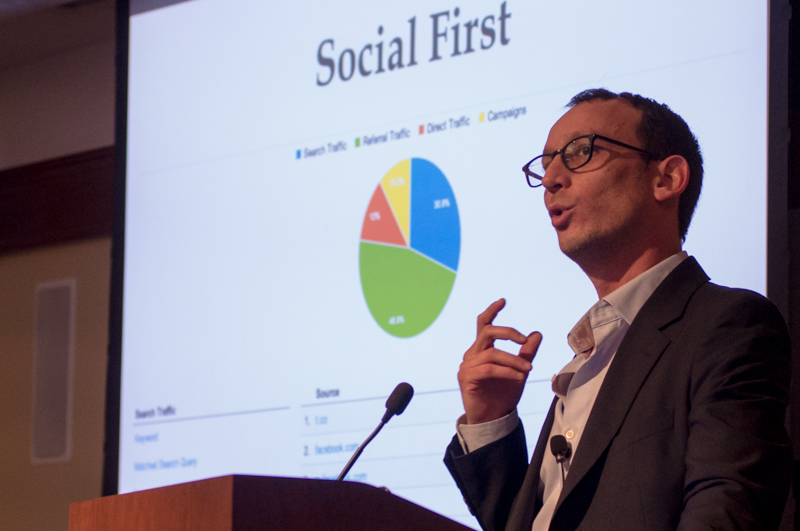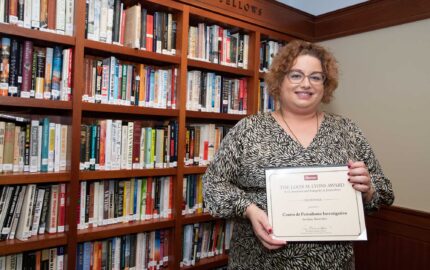By Jessie Schanzle and Aleszu Bajak
In April, the Nieman Foundation and Harvard’s David Rockefeller Center for Latin American Studies hosted a discussion about the future of Latin American media featuring some of the region’s most innovative journalists: Radio Ambulante’s Daniel Alarcón, Nuestra Aparente Rendición’s Lolita Bosch, Fusion’s Daniel Eilemberg—a 2013 Visiting Nieman Fellow who founded Mexico’s Animal Politico—and El Faro’s Óscar Martínez.
Combining robust reporting with narrative storytelling, the panelists have gone beyond highlighting the region’s news—they are elucidating the intricacies of the Latin American condition. They’re also innovating the way in which Latin Americans receive and share this media. From radio storytelling to blogging networks to leveraging social media platforms, the panelists have carved out new forms of publicizing independent journalism.
When novelist Daniel Alarcón decided to launch “Radio Ambulante” in 2011, people told him it would never work. He envisioned a transnational, Spanish-language podcast—”This American Life” for Latin America. “They said Mexicans only want to hear stories about Mexico, and Chileans only want to hear stories about Chile and Puerto Ricans only want to hear about Puerto Rico,” said Alarcón. “And I just felt instinctively that wasn’t true.” Now in its second full season, the show pulls in listeners from all over the region. “This is for me just incredibly heartening because one of the premises of Radio Ambulante was that there’s a conversation that people want to have in Latin America that is not local,” said Alarcón. “A conversation that is regional, that is based on the things that we share, based on both historical and cultural and linguistic sort of universal traits for the region.”
At ElFaro.net, a digital news organization in El Salvador, Óscar Martínez works on Sala Negra, a special project investigating violence in Central America. Journalists and photographers work together to produce in-depth coverage of violence in the region and the forces driving people in Central America to migrate to the United States. The reality in Latin America is so complex, said Martínez, that to tell it well the traditional rules of old media have to be broken.
After learning about the massacre of 72 migrants in San Fernanado, Mexico in 2010, novelist Lolita Bosch emailed 300 of her friends and asked what they could to help. The group began investigating Mexico’s drug war, and published their reporting on the website Nuestra Aparente Rendición. They strive to cover the consequences and casualties of the war with humanity and compassion, supporting victims and telling their stories. “They need to be heard and they need to be understood, especially understood,” said Bosch. The groups also records the names of victims of violence in Mexico, chronicling some 50,000 since launching in 2010.
When Daniel Eilemberg moved to Mexico he was told that young people weren’t interested in politics. He decided to test that theory in 2009 by launching a Twitter account called @PajaroPolitico, focused exclusively on coverage of Mexican Politics. The success of that account led to a new website, Animal Politico, which was the most read political platform during the 2012 general election in Mexico, with the majority of its audience between 15 and 25 years old. “If you’re trying to reach an audience in that age group you have to go where they already are,” said Eilemberg. “You have to go to the platforms where they are, where they’re having their conversations and insert yourself and have those conversations with them.”



